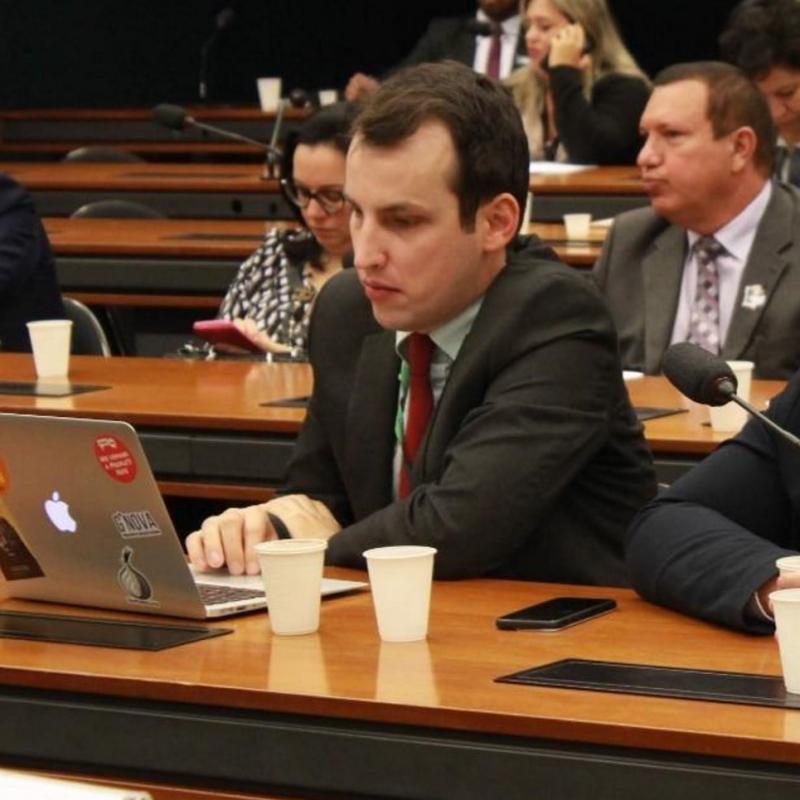Breadcrumb
When Pepe Tonin (MPP 2017) joined the Master of Public Policy, his home country of Brazil had been confronting a deep political crisis since 2013. With many politicians implicated in corruption scandals, including the former president Dilma Rousseff, trust in government was at an all-time low. For Pepe, whose career had been focused on integrity and transparency in government, his time at the School was a critical period for him to consider his contributions going forward.
“Being in Oxford gave me chance to reflect about democracy, institutions, morals and ethics in government. My own work in transparency and integrity is often manipulated by extremists, at least in Brazil, where corruption is used to build anti-democratic rules. On the MPP I also met Felipe Rigoni, who was later elected to Brazil’s congress, and we spent a lot of time between classes discussing integrity and building democracy and how they are complementary.”
Though Pepe had received several offers for public policy programmes, he chose the Blavatnik School of Government because of its link to Brazil through the Lemann Foundation partnership. He also felt the course’s interdisciplinary nature would help him to continue building his career in anti-corruption in the public sector.
“If you think about preparing yourself to be a good public servant, you think about philosophy, law, politics, economics. At the Blavatnik School they are all part of the MPP.”
Pepe’s career in anti-corruption began after his undergraduate studies in international relations when he worked for São Paulo’s Legislative Assembly on freedom of information legislation and building transparency. He then moved to Brazil’s CGU (Comptroller General of the Union), a federal level agency that functions as the country`s anti-corruption agency, where he remained for five years working on civil service capacity-building in integrity, access to information and open government partnerships. In 2017, Pepe was invited to Austria, Indonesia, Costa Rica and the US to speak about this work.
Believing that the future of the anti-corruption agenda lay within international organisations, Pepe decided that studying public policy would help him navigate this complex system and have a bigger impact. Pepe completed his summer project at the Organization for Economic Cooperation and Development (OECD) in Paris, where he produced a strategy manual on open government for the country members.
Though an invaluable experience, Pepe missed the fast pace of working on the ground in his country where decisions can have rapid impact. Before returning, however, he decided to spend six months working with Anna Petherick at the Blavatnik School on a project focused on building integrity in government research. This research became the foundation upon which the Lemann Foundation Programme at the School was built.
While Pepe was back in Oxford, his MPP classmate Felipe Rigoni was elected to Brazil’s National Congress. Together with two other members of Congress, Felipe began building a joint office and invited Pepe to interview for the post they were creating in integrity and transparency.
After a successful interview process, Pepe was put to work in an oversight capacity on the national education budget. This project involved constitutionalising the education budget allocation, and Pepe’s team ensured the inclusion of two key regulations – a formal responsibility for each municipality to track and report how their budget is spent, and a condition enshrining that receipt of a portion of the budget depends on the performance of the mayor in the municipality.
Pepe’s team also orchestrated the creation of a shadow education cabinet to hold the Ministry to account, each semester completing a report monitoring their work numbers, budget, public policies and results in terms of attendance and educational attainment. The work of this cabinet has resulted in the resignation of two Ministers for Education.
In addition to education, Pepe’s role overseeing public policy implementation has spanned the areas of climate change and deforestation, the digitalisation of public services, big tech regulation, building back education and health systems from COVID-19 and oversight of the Executive.
June 2022.

